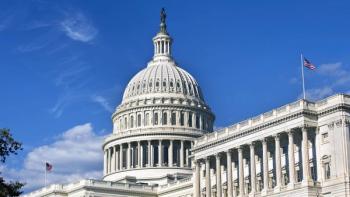
A new initiative aims to speed the approval of and access to new drugs for young patients around the world, while limiting the number of children needed for testing in clinical trials.

Jill Wechsler is BioPharm International's Washington Editor, jillwechsler7@gmail.com.

A new initiative aims to speed the approval of and access to new drugs for young patients around the world, while limiting the number of children needed for testing in clinical trials.

Issues related to mifepristone prescribing and dispensing are emerging in the debate over legislation to reauthorize FDA user fees for drugs and medical products.

Members of Congress asked FDA about multiple contentious issues, including expedited approvals, vaccines for young children, orphan drug exclusivity, access to medical abortions, conflicts of interest, and hiring initiatives.

What are the next steps for permanent authorization of COVID-19 vaccines, treatments, and diagnostics?

New guidance from FDA and legislation from Congress promote clinical trial diversity.

FDA is reviving efforts to establish a Quality Management Maturity program.

Democrats have proposed a measure to facilitate access to less costly comparator drugs needed in clinical trials, while another bill aims to increase transparency in the costs of clinical trials.

Legislative proposals set the stage for debate on FDA policies and programs and whether to include some measures in legislation to reauthorize user fees.

Quality metrics and more domestic production aim to avoid supply disruptions and drug shortages.

Consumer advocates continue to press for initiatives to lower drug prices by revising or reducing patent protections.

Congress is considering revising and improving policies related to drug development and regulation for possible inclusion in broader legislation to reauthorize FDA user fees.

The US Congress approved a federal spending package that increases funding for a range of programs to advance health and medicine.

Biotech companies and medical product manufacturers have condemned the invasion of Ukraine, while also looking to maintain supplies of essential medicines.

Califf will face challenges that include COVID-19, opioids, and user fees.

FDA officials and their scientific advisors have come down hard on clinical development programs that rely on study results from a single foreign country, instead of from multi-regional trials following harmonized R&D standards.

With new COVID-19 infections declining, the agency is resuming domestic inspections of drug manufacturing facilities.

A range of political issues have impacted FDA initiatives vital to the agency’s effectiveness and stature, both at home and on the important global stage.

The global nature of the COVID-19 pandemic emphasizes the critical importance of expanded vaccination.

The draft PREVENT Pandemic Act aims to secure supply chains, expand health data collection, and support access to vital medical products

Delays in sponsors providing postapproval evidence of effectiveness for therapies benefitting from streamlined FDA regulatory pathways are generating pressure for further review and reform of the agency’s accelerated approval process.

The Centers for Medicare and Medicaid Services took action to limit prescribing and use of Biogen’s new and controversial Alzheimer’s treatment Aduhelm (aducanumab).

FDA maintained a steady pace in 2021 in approving important new therapies for market, including new vaccines and treatments for COVID-19.

FDA authorized emergency use of Pfizer’s oral antiviral drug to make the drug available as quickly as possible.

To maintain smooth operations, FDA is relying on swift reauthorization of industry-paid user fee programs.

General agreement that FDA needs a confirmed commissioner may speed Califf’s appointment.

President Joe Biden highlighted how current proposals for curbing outlays on pharmaceuticals will help protect patients’ health and save the government billions.

High price tags threaten to block patient access to potentially life-saving cures and treatments.

The need for medicines to combat COVID-19 has impacted the way regulatory agencies carry out their operations.

Leading legislators have launched the campaign to enact a second version of the 21st Century Cures Act.

The White House has nominated Robert Califf to head FDA, ending months of uncertainty about the future path for the high-profile agency.